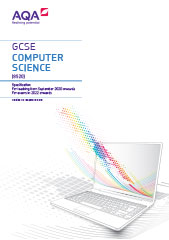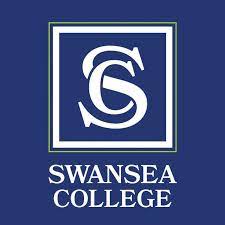Project Description
Course Overview
Our AQA GCSE Computer Science online course will enable students to develop their understanding of the main principles of problem solving using computers. They will apply their understanding to develop computer-based solutions to problems using algorithms and a high-level programming language. Students also develop a range of technical skills, as well as being able to effectively test and evaluate computing solutions.
Studying Computer Science online course will help learners appreciate current and emerging computing technologies, the benefits of their use and recognise their potential risks.
The AQA GCSE Computer Science online course will enable student to:
- computational thinking, that is thinking about what can be computed and how, and includes consideration of the data required
- understanding of the main principles of solving problems by using computers
- understanding that every computer system is made up of sub-systems, which in turn consist of further sub-systems
- understanding of the component parts of computer systems and how they interrelate, including software, data, hardware, communications and people
- skills necessary to apply understanding to solve computer-based problems using a high-level programming language.
Course Options:
- Access to full course online
- e-books provided
Workbooks* will be posted
Interactive quizzes*
Google Classroom Access
Tutor email support
Register your exams with us
About our teachers
Course structure – Self-study option
- Total course – 160 hours online
- Students are expected to study 6 hours per week, independently
- Enrolment fee: £80
- Course fee: £495
How to Apply?
- Complete the application form
- Send a scanned, coloured copy of your Passport or Driving License office@swanseacollege.com
- Pay the application fee of £200 (the application fee is made up of £80 enrolment fee and £120 towards the course fee, this fee is non-refundable)
Course Contents
The course is structured into bite-sized parts:
- Representing algorithms
- Effciency of algorithms
- Searching algorithms
- Sorting algorithms
- Data types
- Programming concepts
- Arithmetic operations in a programming language
- Relational operations in a programming language
- Boolean operations in a programming language
- Data structures
- Input/output
- String handling operations in a programming language
- Random number generation in a programming language
- Structured programming and subroutines (procedures and
functions) - Robust and secure programming
- Number bases
- Converting between number bases
- Units of information
- Binary arithmetic
- Character encoding
- Representing images
- Representing sound
- Data compression
- Hardware and software
- Boolean logic
- Software classifcation
- Classifcation of programming languages and translators
- Systems architecture
- Computer networks
- Network security
- Protocols
- Fundamentals of cyber security
- Cyber security threats
- Relational databases
- Structured query language (SQL)
- Emerging trends, issues and impact
There are no previous entry requirements for this course, however students are expected to have a reasonable standard of literacy.
Exam and Assessment
2 written exams
Course Outcome
Upon successful completion of all the exams, you will receive a GCSE in Computer Science
More information can be found in the specification
Have a question? Ask our virtual assistant on live chat below
or call us on 01792 535000 and speak to our experienced Student Adviser.


